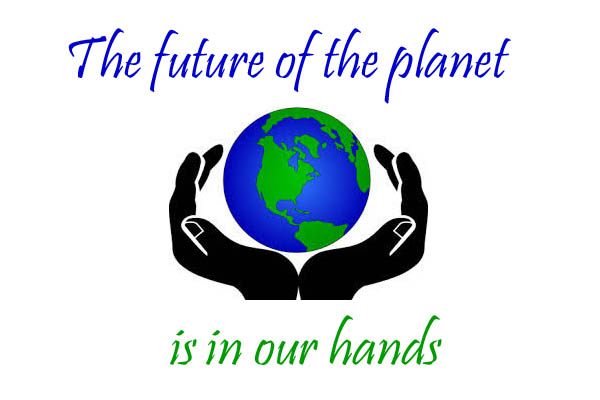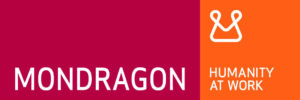
Conservation Awakening is on the Rise
It is exciting to see the emergence of articles in business publications, showing at last a willingness to talk about a subject that until now has been strictly taboo. The subject in question is, of course, the fact that our capitalist system, currently structured, does not provide for conservation of the Earth’s resources, and is no longer sustainable.
Recently we wrote about Mongabay, our new favorite source of conservation news. And I have also written about Paul Simon’s 17-city tour in support of E.O. Wilson’s Half-Earth goal. Both these efforts are encouraging signs that the public’s awareness of the need for conservation is increasing. Mongabay’s web site shows the flood of new knowledge coming into the field, while the famous biologist E.O. Wilson gives us a roadmap for saving the remaining species of our planet, be they orchids or orangutans. But until recently, businesses have avoided the topic of capitalism’s endless need for growth and its effect on our planet.
All this denial on the part of business is about to change. The business community stands to lose a great deal of profitability if people suddenly amend their behavior and become more environmentally responsible. A case in point is the on-going lawsuit against Exxon-Mobil for its apparent suppression of research dating back to the 70’s, showing that our ever-increasing burning of fossil fuels has a detrimental effect on ecology and on human health.
Fortunately, some business leaders are beginning to acknowledge the consequences of the damage caused, and the inevitable drastic damage to come, if major steps are not taken to adopt a different business model.
An article in Forbes magazine, dated February 9, 2016, struck at the heart of the matter. Written by Drew Hansen and entitled Unless It Changes, Capitalism Will Starve Humanity By 2050, the article drew many negative comments, but also a surprising number of astute comments in support. The significance of such an article appearing in a conservative business publication cannot be ignored. By publishing this piece, Forbes has broken a long-standing taboo by openly recognizing that our economic model of continued growth in a limited world environment is ultimately unsustainable.
In the very first paragraph Hansen states that “Capitalism has generated massive wealth for some, but it’s devastated the planet and has failed to improve human well-being at scale.” He follows with four major, measurable outcomes the planet has already undergone:
- Species are going extinct at a rate 1,000 times faster than that of the natural rate over the previous 65 million years, according to the Center for Health and the Global Environment at Harvard Medical School.
- Since 2000, 6 million hectares of primary forest have been lost each year. That’s 14,826,322 acres, or just less than the entire state of West Virginia, as per a 2010 assessment by the Food and Agricultural Organization of the UN.
- Even in the U.S., 15% of the population lives below the poverty line. For children under the age of 18, that number increases to 20% (U.S. Census).
- The world’s population is expected to reach 10 billion by 2050 (United Nations’ projections).
Hanson goes on to say:
Human activities are behind the extinction crisis. Commercial agriculture, timber extraction, and infrastructure development are causing habitat loss and our reliance on fossil fuels is a major contributor to climate change. [Corporations are] committed to the relentless pursuit of growth, even if it ravages the planet and threatens human health [and that] corporations are able to continue engaging in increasingly environmentally exploitative behavior by obscuring the link between endless economic growth and worsening environmental destruction.
As an example, Hansen tells us that “fund managers at global financial institutions own the majority (70%) of the public stock exchange. These absent owners have no stake in the communities in which the companies operate. Furthermore, management-controlled equity is concentrated in the hands of a select few: the CEO and other senior executives.”
 Hansen proposes that “we need to build a new system: one that will balance economic growth with sustainability and human flourishing.” He goes on to discuss cooperative working arrangements that followers of Professor Richard Wolff (Democracy@Work) are well familiar. Wolff, a long-time professor of economics at an ivy-league university discusses the lack of democracy in our work place. His rising popularity is just another good example of how the public is showing a readiness to adopt new business models.
Hansen proposes that “we need to build a new system: one that will balance economic growth with sustainability and human flourishing.” He goes on to discuss cooperative working arrangements that followers of Professor Richard Wolff (Democracy@Work) are well familiar. Wolff, a long-time professor of economics at an ivy-league university discusses the lack of democracy in our work place. His rising popularity is just another good example of how the public is showing a readiness to adopt new business models.
One of Wolff’s ongoing topics is an idea that is not exactly new but has proven highly successful. This is the concept of worker co-operatives, of which the best example is Mondragon, a company in Spain. Hansen explains:
Mondragon is the oft-cited example of a successful, modern worker cooperative. Mondragon’s broad-based employee ownership is not the same as an Employee Stock Ownership Plan. With [the Mondragon model of] ownership comes a say – control – over the business. Their workers elect management, and management is responsible to the employees.
Hansens’s conclusion: “These are small steps toward a system that values the employee more than what the employee can produce. By giving employees a greater say in decision-making, corporations will make choices that ensure the future of the planet and its inhabitants.”
Forbes’ decision to publish Hansen’s article is an encouraging sign. Even more encouraging is the insight of the readers in the comment section. A few examples:
This is the consequence not of our economic performance but our economic position and ability to externalize the incalculable costs — including planetary starvation, as this article discusses — of capitalism. The greatest power of capitalism is to externalize costs. And that US capital has done extremely well and to the benefit — for now — of Americans.
Another part to look at is the debt side of the balance sheet. There is a self-fulfilling prophecy pushing all of us to constant growth to repay before credit crunches and money become scarce.
Employees who have ownership in the businesses where they work have an opportunity to generate more wealth, and less wealth is concentrated in the hands of financiers who don’t have a vested interest in the communities where these enterprises operate.
Collectively owned enterprises regardless of their ethical charter will still have to go to banks to borrow. They will still need collateral and they will still need to take the pound of flesh out of workers, consumers, and planet. The debt money form itself is a major force behind all of this disaster.

Cattleya elongata
Photograph by Gary Yong Gee
Atlantic Rainforest
Orchid enthusiasts should welcome the news that the importance of conservation and environmental responsibility have been highlighted in a major business publication. It means that businesses will need to exercise more care in how they use the earth’s resources, and take measures to avoid destruction of natural habitats. They know the public is watching, and they know that consumers vote with their dollars. If they want to retain their market shares, they have to look better than their competitors.
Currently, species-rich rainforests are being cleared for palm oil by major agricultural conglomerates. At the same time the Atlantic Rainforest in Brazil is being overtaken by eucalyptus farming for the pulp industry. But as public awareness increases and consumer pressure mounts, industry will be forced to make changes. Business leaders know that they need satisfied customers, and increasingly they are bowing to public pressures.
Ever-increasing growth in a finite system is not possible. It takes no sophistication whatsoever to understand that. If we allow ourselves to reach the limits of growth, by having destroyed the life-sustaining benefits of our old-growth forests, we will all lose, businesses included.
Whether they admit it or not, business leaders know this. Our job is to put the pressure on them, and keep the pressure on until the needed changes are made. And most important, we must vote with our dollars. Money is, after all, the universal language.![]()